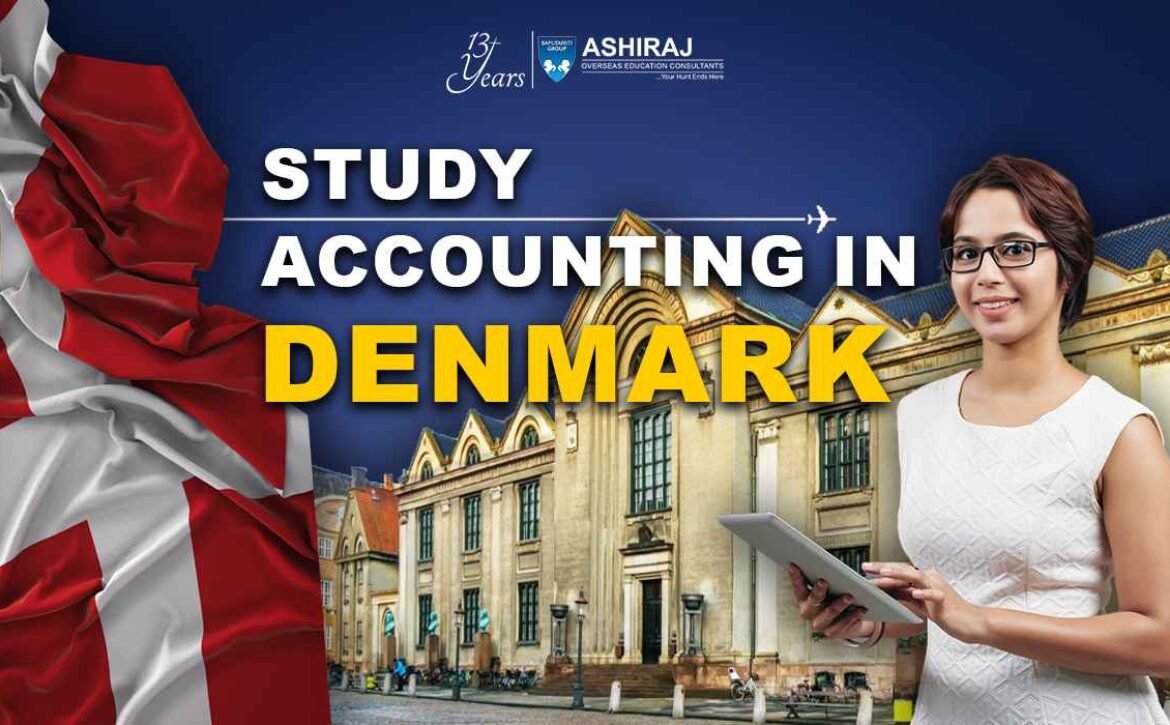
Accounting in Denmark
Accounting in Denmark encapsulates the intricate financial practices deeply embedded in Denmark’s business landscape. Denmark’s accounting framework adheres to international standards while also reflecting its unique economic and regulatory environment. Renowned for its transparency and reliability, Danish accounting principles prioritize accuracy and ethical conduct, bolstering investor confidence and fostering a conducive business environment. The nation’s accounting ecosystem intertwines traditional methodologies with innovative digital solutions, reflecting Denmark’s progressive approach towards financial management.
In Denmark, meticulous record-keeping and adherence to stringent reporting standards underscore the significance of accounting in corporate governance and regulatory compliance. The country’s emphasis on sustainability and corporate social responsibility is mirrored in its accounting practices, where stakeholders demand comprehensive disclosures regarding environmental and social impacts. As Denmark continues to embrace digital transformation, accounting professionals are increasingly leveraging advanced technologies to streamline processes and enhance decision-making, ensuring the country remains at the forefront of financial innovation.
Why to Study Accounting in Denmark?
- International Recognition: Denmark’s accounting education aligns with global standards, offering qualifications recognized worldwide, enhancing career prospects internationally.
- Cutting-edge Curriculum: Accounting programs in Denmark integrate contemporary financial practices with innovative digital technologies, providing students with a competitive edge in the evolving job market.
- Practical Experience: Many Danish accounting programs emphasize hands-on learning through internships, allowing students to apply theoretical knowledge in real-world scenarios and build invaluable professional networks.
- Multicultural Environment: Denmark’s diverse student body fosters cross-cultural collaboration, enriching the learning experience and preparing students for globalized workplaces.
- Industry Connections: Close ties between universities and industry ensure that accounting students in Denmark have access to industry insights, guest lectures, and networking opportunities, facilitating seamless transition into the workforce.
- Ethical Focus: Danish accounting education places a strong emphasis on ethical principles and corporate social responsibility, nurturing responsible financial professionals who prioritize integrity and sustainability.
- Career Opportunities: Denmark’s robust economy and thriving business environment offer abundant career opportunities for accounting graduates, ranging from multinational corporations to startups and public sector organizations.
Studying accounting in Denmark equips students with a solid foundation in financial management, ethical practices, and technological proficiency, paving the way for a successful and fulfilling career in the dynamic field of accounting.
Top Universities to Study Accounting in Denmark
Rank | University | QS World University Ranking 2023 | Type of University | Average Annual Fees | Programs Offered |
1 | Copenhagen Business School | 50 | Public | $10,000 | Bachelor’s, Master’s, PhD in Accounting |
2 | Aarhus University | 70 | Public | $8,000 | Bachelor’s, Master’s, PhD in Accounting |
3 | University of Southern Denmark | 120 | Public | $9,500 | Bachelor’s, Master’s in Accounting |
4 | Technical University of Denmark | 150 | Public | $7,500 | Bachelor’s, Master’s, PhD in Financial Studies |
5 | Aalborg University | 200 | Public | $8,200 | Bachelor’s, Master’s in Business Administration |
List of Top Universities in Denmark for Accounting
- Copenhagen Business School: Renowned for its excellence in accounting education, offering comprehensive programs at undergraduate, postgraduate, and doctoral levels with a focus on industry relevance.
- Aarhus University: Provides rigorous accounting education integrated with research opportunities, preparing students for diverse career paths in accounting and finance sectors.
- University of Southern Denmark: Offers a range of accounting programs emphasizing practical skills and ethical principles, fostering responsible financial professionals.
- Technical University of Denmark: Specializes in financial studies, blending theoretical knowledge with practical applications to meet the demands of the modern accounting landscape.
- Aalborg University: Known for its interdisciplinary approach, combining accounting education with business administration, equipping graduates with versatile skills for varied professional roles in accounting and finance.
Course Curriculum for Accounting in Denmark
- International Standards: Accounting courses in Denmark adhere to international accounting standards, ensuring graduates are equipped with globally recognized skills and knowledge.
- Financial Reporting: Emphasis on financial reporting standards and practices, enabling students to prepare and analyze financial statements accurately and ethically.
- Taxation and Compliance: In-depth coverage of tax laws and compliance regulations, preparing students to navigate the complexities of taxation in both domestic and international contexts.
- Auditing and Assurance: Comprehensive study of auditing principles and assurance procedures, equipping students with the skills to assess financial risks and ensure regulatory compliance.
- Ethics and Corporate Governance: Integration of ethical considerations and corporate governance principles into the curriculum, fostering a strong sense of responsibility and integrity among accounting professionals.
- Digitalization and Technology: Incorporation of emerging technologies such as data analytics and blockchain into accounting education, enabling students to adapt to the evolving digital landscape of accounting practices.
- Case Studies and Practical Learning: Utilization of case studies and real-world scenarios to enhance practical understanding and problem-solving skills, preparing students for the dynamic challenges of the accounting profession.
- Internship Opportunities: Provision of internship opportunities with leading accounting firms and corporations, allowing students to gain valuable hands-on experience and industry insights.
Accounting in Denmark offers a comprehensive curriculum that combines theoretical knowledge with practical skills, preparing graduates for successful careers in diverse sectors of the global accounting industry.
Eligibility Criteria & Admission Requirements for MS in Accounting in Denmark
- Language Proficiency: Applicants must demonstrate proficiency in English by providing either IELTS or TOEFL scores. The minimum required scores are as follows:
Test | Minimum Score |
IELTS | 6.5 |
TOEFL | 90 |
Standardized Tests: Depending on the university’s requirements, applicants may need to submit scores for either GRE or GMAT. The typical minimum scores are:
Test | Minimum Score |
GRE | 155 (Quantitative), 160 (Verbal) |
GMAT | 600 |
- Academic Qualifications: Applicants should hold a relevant bachelor’s degree in accounting or a related field from an accredited institution. Transcripts demonstrating academic performance may be required.
- Passport & Student Visa: International applicants must possess a valid passport and obtain a student visa to study in Denmark. Visa requirements and application processes may vary, so applicants should consult the Danish embassy or consulate in their home country for detailed information.
- Work Experience: While not always mandatory, some universities may prefer applicants with relevant work experience in accounting or finance. Providing details of any relevant professional experience can strengthen the application.
- Submission of Academic Certificates: Applicants are typically required to submit certified copies of their academic certificates and transcripts, demonstrating their educational background and qualifications.
Meeting these eligibility criteria is essential for prospective students aspiring to pursue accounting studies in Denmark, ensuring a smooth application process and successful enrollment in their chosen academic program.
Documents Required for Studying Accounting in Denmark
- Passport: A valid passport is necessary for international applicants, serving as identification and proof of nationality throughout the application process.
- Two Letters of Recommendation (LOR): Applicants typically need to provide LORs from academic or professional references attesting to their skills, character, and suitability for the accounting program.
- Statement of Purpose (SOP): An SOP outlines the applicant’s academic and career goals, reasons for choosing the accounting program in Denmark, and how their background aligns with the program’s objectives.
- Curriculum Vitae (CV): A comprehensive CV detailing the applicant’s educational background, work experience, extracurricular activities, skills, and achievements.
- Official High School Transcripts: Transcripts from the applicant’s high school education, demonstrating academic performance and completion of relevant coursework.
- Educational Certificates: Certificates verifying the completion of previous academic degrees or qualifications, such as a bachelor’s degree in accounting or a related field.
- Work Experience Certificate: If applicable, a certificate verifying any relevant work experience in accounting or related fields.
- Proof of Financial Resources: Documentation demonstrating the applicant’s ability to cover tuition fees, living expenses, and other costs associated with studying and living in Denmark. This may include bank statements, scholarship letters, or sponsorship letters.
Ensuring the timely and accurate submission of these documents is crucial for prospective students applying to accounting programs in Denmark, facilitating a smooth application process and enhancing the chances of admission.
Admission Process for Accounting in Denmark
- Research: Explore accounting programs offered by universities in Denmark, considering factors such as curriculum, faculty, location, and reputation.
- Check Eligibility: Review admission requirements, including academic qualifications, language proficiency tests (IELTS or TOEFL), and standardized test scores (GRE or GMAT).
- Prepare Documents: Gather necessary documents, including transcripts, certificates, passport, letters of recommendation (LORs), statement of purpose (SOP), curriculum vitae (CV), and proof of financial resources.
- Submit Application: Complete the online application form provided by the university, ensuring all required information is accurate and up-to-date. Pay any application fees, if applicable.
- Language Proficiency Test: Schedule and take the required English language proficiency test (IELTS or TOEFL) and submit scores to the university.
- Standardized Tests: If required, register for and take the GRE or GMAT. Submit scores to the university as per their instructions.
- Interview (if applicable): Some universities may require an interview as part of the admission process. Prepare thoroughly and attend the interview as scheduled.
- Wait for Decision: Await the university’s decision on your application. This typically takes a few weeks to a couple of months, depending on the university’s admission timeline.
- Acceptance and Enrollment: Upon receiving an offer of admission, accept the offer within the specified timeframe and complete any additional enrollment requirements, such as paying a deposit or attending orientation sessions.
Following these steps diligently can streamline the admission process for prospective students seeking to study accounting in Denmark, facilitating a smooth transition into their chosen academic program.
“Education is the most powerful weapon which you can use to change the world.”
Nelson Mandela
Cost of Accounting Course in Denmark
- Tuition Fees: Tuition fees for accounting programs in Denmark vary depending on the university and the level of study. On average, international students can expect to pay between $8,000 to $10,000 per year for bachelor’s and master’s programs in accounting.
- Living Expenses: The cost of living in Denmark, including accommodation, food, transportation, and miscellaneous expenses, can range from $800 to $1,200 per month, depending on the city and lifestyle.
- Health Insurance: International students are required to have health insurance coverage while studying in Denmark. This typically costs around $50 to $100 per month, depending on the insurance provider and coverage options.
- Books and Supplies: Additional expenses for books, study materials, and other supplies may amount to approximately $500 to $800 per year, depending on the program and coursework requirements.
- Student Union Fees: Some universities in Denmark may charge student union fees, which vary but are generally around $100 to $200 per year.
- Scholarships and Financial Aid: International students may be eligible for scholarships, grants, or financial aid offered by universities, government organizations, or private institutions to help offset the cost of studying accounting in Denmark.
Understanding the cost of studying accounting in Denmark is essential for prospective students to budget effectively and make informed decisions about their education abroad. Accounting in Denmark offers a high-quality education within a reasonable financial framework, making it an attractive option for international students.
Scholarships for Accounting Courses in Denmark
Scholarship Name | Amount | Application Deadline |
Danish Government Scholarships | Varies | March 1st (annually) |
Copenhagen Business School Scholarships | Up to $15,000 per year | April 1st |
Aarhus University Scholarships | Varies | March 15th |
University of Southern Denmark Scholarships | Up to $10,000 per year | February 1st |
Technical University of Denmark Scholarships | Varies | January 15th |
Scholarships for Accounting in Denmark
- Danish Government Scholarships: Offered to international students by the Danish government, covering tuition fees and providing a monthly stipend for living expenses. Application deadline: March 1st annually.
- Copenhagen Business School Scholarships: Merit-based scholarships awarded to outstanding students enrolled in accounting programs at Copenhagen Business School. Application deadline: April 1st.
- Aarhus University Scholarships: Various scholarships available for international students pursuing accounting studies at Aarhus University, providing financial support towards tuition fees and living expenses. Application deadline: March 15th.
- University of Southern Denmark Scholarships: Financial assistance offered to international students enrolled in accounting programs at the University of Southern Denmark, helping to cover tuition fees and living costs. Application deadline: February 1st.
- Technical University of Denmark Scholarships: Scholarships available for international students studying accounting at the Technical University of Denmark, providing financial support based on academic merit and financial need. Application deadline: January 15th.
These scholarships offer valuable financial support to international students pursuing accounting studies in Denmark, helping to make education more accessible and affordable. Accounting in Denmark becomes more feasible and attractive with such financial aid opportunities.
Career Opportunities After Accounting in Denmark
Job Profile | Average Salary (DKK) |
Financial Accountant | 400,000 – 500,000 |
Management Accountant | 450,000 – 550,000 |
Tax Consultant | 500,000 – 600,000 |
Auditor | 450,000 – 550,000 |
Financial Analyst | 500,000 – 600,000 |
Career Opportunities After Accounting in Denmark
- Financial Accountant: Responsible for preparing financial statements, managing budgets, and ensuring compliance with accounting regulations. Average salary ranges from 400,000 to 500,000 DKK annually.
- Management Accountant: Analyzes financial data, prepares reports for internal stakeholders, and assists in strategic decision-making. Average salary ranges from 450,000 to 550,000 DKK annually.
- Tax Consultant: Provides advice on tax planning, compliance, and optimization strategies for businesses and individuals. Average salary ranges from 500,000 to 600,000 DKK annually.
- Auditor: Conducts financial audits to verify accuracy and compliance with regulations, prepares audit reports, and provides recommendations for improvement. Average salary ranges from 450,000 to 550,000 DKK annually.
- Financial Analyst: Analyzes financial data, market trends, and investment opportunities to provide insights for decision-making. Average salary ranges from 500,000 to 600,000 DKK annually.
These career opportunities demonstrate the diverse paths available to accounting graduates in Denmark, offering competitive salaries and opportunities for professional growth. Accounting in Denmark opens doors to rewarding careers with ample opportunities for advancement and specialization.
Frequently Asked Questions About Accounting in Denmark
Entry requirements typically include a relevant bachelor’s degree, language proficiency (IELTS or TOEFL), and in some cases, standardized test scores (GRE or GMAT).
Yes, various scholarships are offered by universities and the Danish government to support international students pursuing accounting studies in Denmark.
The average tuition fee for accounting programs in Denmark ranges from $8,000 to $10,000 per year for international students.
Accounting graduates in Denmark have a promising job outlook, with opportunities in diverse sectors such as finance, auditing, taxation, and consulting.
Yes, international students are allowed to work part-time during their studies in Denmark, typically up to 20 hours per week.
Yes, many accounting programs in Denmark are taught in English to accommodate international students.
Bachelor’s programs in accounting typically last three years, while master’s programs can range from one to two years, depending on the university.
To apply for a student visa, you need to be accepted into a Danish university, provide proof of financial resources, and meet other visa requirements outlined by the Danish Immigration Service.
Yes, many universities in Denmark offer internship opportunities for accounting students to gain practical experience and build professional networks.
Graduates of accounting programs in Denmark have diverse career prospects, including roles as financial accountants, auditors, tax consultants, financial analysts, and more.




